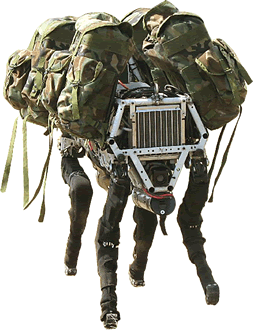Difference between revisions of "Miscellaneous Multimedia"
| Line 18: | Line 18: | ||
<br /> | <br /> | ||
<br /> | <br /> | ||
| − | * [[ | + | * [[http://cs.smith.edu/~thiebaut/videos/Charles_Babbage_and_his_Difference_Engine.flv | Charles Babbage]] and his Difference Engine |
| − | * [[ | + | * [[http://cs.smith.edu/~thiebaut/videos/zuse_ibm_gates_wozniack.flv | History of computing]]: A quick overview of the history of computers, mentioning Zuse, Ibm, Bill Gates, Steve Wozniack, Steve Jobs. |
| − | * [[ | + | * [[http://cs.smith.edu/~thiebaut/videos/The_History_of_Computers_Part_I.flv | The history of Computers]], Part I |
| − | * [[ | + | * [[http://cs.smith.edu/~thiebaut/videos/History_Of_Computers_1939_To_Present.flv | History of computers, 1939 to present]] |
| − | * [[ | + | * [[http://cs.smith.edu/~thiebaut/videos/Computer_History | Computer History]]: A nice coverage, starting with Babbage, and mentioning Atanasof, Colossus, Zuse, Eniac, Apple I, IBM, Altair, Radio Shack TRS80. |
| − | * [[ | + | * [[http://cs.smith.edu/~thiebaut/videos/When_Computers_Were_Human.flv | When computers were human, by David Grier. First 45 minutes provide nice coverage of the human side of computing. |
Revision as of 15:56, 13 September 2008
Videos
- Design and the Elastic Mind, a Charlie Rose interview with Paula Antonelli, curator of the MoMA exhibit of the same name.
- BigDog: A video of BigDog, the alpha male of the Boston Dynamics family of robots. More videos can be found at www.bostondynamics.com
- [| Charles Babbage] and his Difference Engine
- [| History of computing]: A quick overview of the history of computers, mentioning Zuse, Ibm, Bill Gates, Steve Wozniack, Steve Jobs.
- [| The history of Computers], Part I
- [| History of computers, 1939 to present]
- [| Computer History]: A nice coverage, starting with Babbage, and mentioning Atanasof, Colossus, Zuse, Eniac, Apple I, IBM, Altair, Radio Shack TRS80.
- [[http://cs.smith.edu/~thiebaut/videos/When_Computers_Were_Human.flv | When computers were human, by David Grier. First 45 minutes provide nice coverage of the human side of computing.

